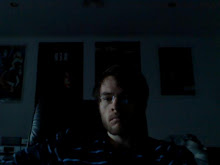Mekong slalom[1].
[1] The argument goes or it tends to go it’s okay to have killed so many people because had we not done more would have died.
This is a utilitarian argument.
It can apply to Germany, Iraq, Japan.
In some cases it relies on good scholarship.
And always a counterfactual.
One philosophical problem is if you accept the terms, you can equally say, had we not ignored early intelligence, and bent all our resources on stopping the Final Solution, we could have saved millions. Therefore, certain acts we undertook instead are unjustifiable.
Had we rather invaded Congo than Iraq, etc.
Had we not done.
Consider this: I have to kill you, because if I don’t, two others will die. What’s my evidence? Why, scholarship derived from primary sources.
When you tell a story from written evidence to show that had we not invaded Iraq more in the long run would have died than are now dead, you are weighing hundreds of thousands of lives, each as vivid as your own, against that story. Is this ethical?
Even tentative words like ‘right’ and ‘justifiable’?
The ethics of history compels us to reconstruct the mental states of historical actors. How well do you know your current mental state?
It’s probably wrong to argue from, This choice was justified, to, This event or act is justified.
How far ahead — and with what accuracy — can you predict the future?
Proposition: You can never be certain enough about what might have been to cite your speculation about such in justification of killing.
So why even make a ruminative attempt?
Had they not bombed Nagasaki and me and my family, two hundred thousand more Americans and Japanese would eventually have died. And next week five Americans and a hundred Iraqis will die in Iraq.
I was glad until, a week after I wrote that, I watched the news.
I was roughly right about the fatalities, but it turns out the Americans and some Iraqis died in battle. Had the Americans’ commander only paid his informants more, he would have known about the bombing of a Shia school, and sent his troops there.
Had I not checked the news, I would be glad.
2009



